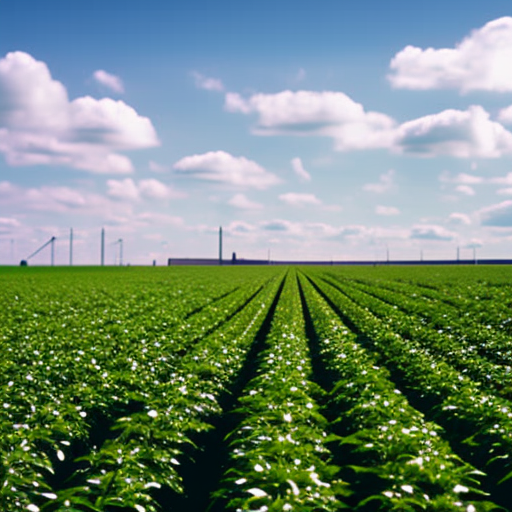Agritech Innovations
Agritech innovations refer to the application of technology in the agricultural sector to improve efficiency, productivity, and sustainability. These innovations encompass a wide range of technologies, including precision agriculture, robotics, artificial intelligence, and biotechnology. By leveraging these technologies, agritech aims to address the challenges faced by the agriculture industry, such as increasing food demand, limited resources, climate change, and labor shortages.
Precision Agriculture
Precision agriculture involves the use of advanced technologies, such as GPS, sensors, and drones, to collect data about soil conditions, weather patterns, and crop health. This data is then analyzed to make informed decisions regarding irrigation, fertilization, and pest control. By applying inputs precisely where and when they are needed, farmers can optimize resource utilization, reduce waste, and increase yields. Precision agriculture also enables the monitoring of crop growth in real-time, allowing for early detection of diseases or nutrient deficiencies.
Robotics
Robots are increasingly being used in agriculture to perform tasks that are repetitive, labor-intensive, or dangerous for humans. For example, autonomous robots can be used for planting, harvesting, and weeding crops. These robots are equipped with sensors and cameras to navigate through fields, identify plants, and perform precise actions. By automating these tasks, farmers can reduce their reliance on manual labor and improve operational efficiency. Robotics also offers the potential for round-the-clock operations, allowing for increased productivity.
Artificial Intelligence
Artificial intelligence (AI) is revolutionizing the agriculture industry by enabling machines to learn from data, make decisions, and perform tasks that traditionally required human intelligence. AI algorithms can analyze vast amounts of data, such as satellite imagery, weather patterns, and historical crop yields, to provide valuable insights and predictions. This information can help farmers optimize planting schedules, predict pest outbreaks, and manage resources effectively. AI-powered systems can also detect and classify plant diseases, allowing for early intervention and reducing crop losses.
Biotechnology
Biotechnology plays a crucial role in agritech innovations by leveraging genetic engineering and molecular biology techniques to improve crop traits. Genetically modified organisms (GMOs) are developed to possess desirable traits, such as resistance to pests, diseases, or herbicides. These genetically modified crops can increase yields, reduce chemical inputs, and improve nutritional content. Biotechnology also enables the development of biofuels, which can provide a sustainable alternative to fossil fuels.
Benefits and Challenges
Agritech innovations offer numerous benefits to the agriculture industry and society as a whole. By improving productivity and efficiency, agritech can help meet the increasing global food demand while minimizing the environmental impact. It can also enable small-scale farmers to access valuable information and resources, leveling the playing field. However, there are also challenges associated with agritech adoption. High upfront costs, lack of infrastructure, and limited access to technology in rural areas can hinder widespread implementation. Additionally, concerns about data privacy, ethical use of biotechnology, and potential job displacement need to be addressed.
The Future of Agritech
The future of agritech looks promising, with ongoing advancements in technology and increasing investment in the sector. Emerging technologies, such as blockchain and Internet of Things (IoT), are expected to further enhance transparency, traceability, and efficiency in the agricultural supply chain. The integration of agritech with sustainable farming practices, such as organic farming and regenerative agriculture, can lead to more environmentally friendly and socially responsible food production systems. Collaboration between farmers, researchers, and technology developers is crucial to ensure that agritech innovations are tailored to the specific needs and challenges of different regions and farming systems.
In conclusion, agritech innovations are transforming the agriculture industry by leveraging technology to improve efficiency, productivity, and sustainability. Precision agriculture, robotics, artificial intelligence, and biotechnology are key areas of focus within agritech. These innovations offer numerous benefits, but also pose challenges that need to be addressed. The future of agritech holds great potential, with emerging technologies and sustainable farming practices shaping the way forward.












